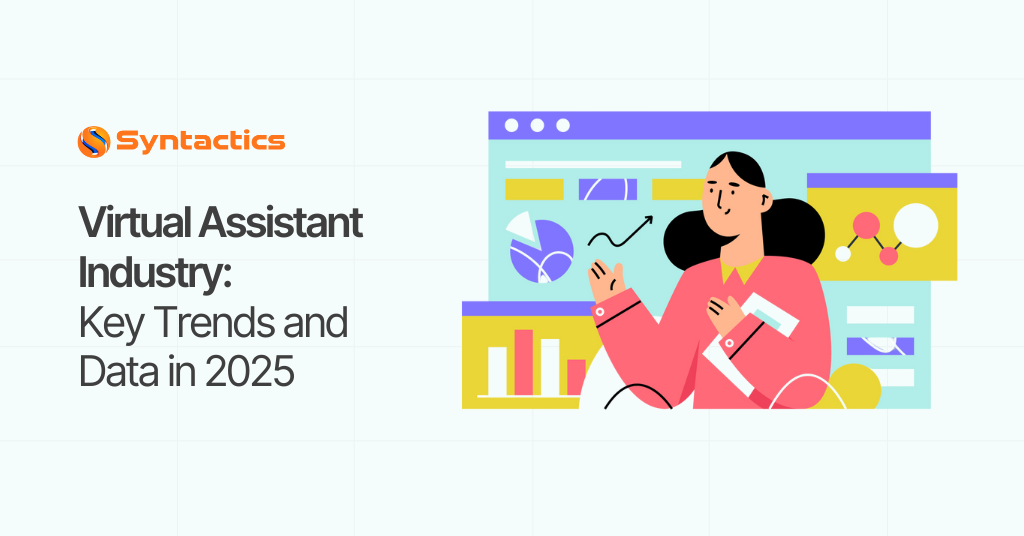
Virtual Assistant Industry: Key Trends and Data in 2025
Get insights to help your business thrive in a rapidly evolving market landscape. Explore key trends and data shaping the Virtual Assistant (VA) industry in 2025.
Virtual Assistants (VA) offer cost-effective and flexible support to many businesses, transforming today’s workforce in a dynamic global market. As remote work becomes standard and automation tools advancing, the demand for skilled VAs is surging across all sectors. Given these trends, the virtual assistant industry is brimming with opportunities for many businesses.
Source: Truelist
Key Takeaways:
- Top industries hiring VAs include IT, SEO, marketing, accounting, law, real estate, and recruitment.
- Businesses demand VAs with expertise in social media, eCommerce, healthcare, and digital marketing to meet evolving industry needs.
- AI-powered VAs are enhancing productivity, automating workflows, and reducing operational costs.
- Remote VAs help cut overhead expenses while integrating them seamlessly with in-house teams using cloud-based tools.
- Virtual assistants streamline administrative, technical, and marketing tasks — allowing teams to focus on strategic growth efficiently.
TABLE OF CONTENTS:
Key Trends Shaping the Industry
Maximize Business Success with Virtual Assistants
Top Industries that Hire VAs
IT Firms
The continuous evolution of technology empowers IT Firms to grow rapidly by leveraging new advancements. This also means great competition in acquiring skilled talent for proper operations.
For this reason, many IT firms tap into VAs to provide the necessary skills and experience to capitalize on ongoing trends. IT Firms also turn to VAs as training in-house employees would incur costs and take a significant amount of time.
Source: Zippia
SEO Agencies
According to Backlinko, moving up one rank in Google increases Click-Through-Rate (CTR) by 2.8%. Companies leverage SEO services to increase brand awareness, drive website traffic, and then turn leads into conversions.
As digital demand rise, the virtual assistant industry is among the top choices for brands to invest in. It offers access to skilled support that helps scale operations, manage campaigns more efficiently, and stay focused on growth-driving activities.
Marketing Firms
As third-party professionals, virtual assistants offer fresh insights and offer practical solutions for marketing firms.
VAs can take community management tasks for social media accounts to grow and maintain a stable online presence. They can also use social media SEO to supercharge business success. In this way, it effectively assists in summarizing and tracking key metrics in business performance and provide insights. Additionally, they can do administrative tasks such as booking appointments, scheduling events, and tracking expenses.
Accounting Firms
Accounting Firms allocate repetitive work to focus on their core activities. This is to ensure uninterrupted focus on essential projects while not ignoring fundamental tasks to ensure workflow stability.
Source: Microsoft
Law Firms
Law firms arguably have the most overwhelming and demanding workloads. This constant buildup of duties causes these agencies to underperform and oftentimes affect their personal life. In fact, Bloomberg Law’s analysis shows that most law practitioners struggle with burnout and deterioration in overall wellness.
Law firms hire paralegal VAs to handle various work from administrative work, and legal research, to client communication. This enhances productivity, maintains organization, and keeps focus on high-value legal work like case strategy and courtroom representation.
Real Estate
With the rising demand for housing, real estate agencies rely on VAs for property promotions and client engagement. The need for these homes increases at the same pace as the population, so families and individuals constantly seek them.
Source: ThereisTalent
Recruitment
Just as the need for homes rises along with the population, the number of job-seeking individuals also grows. Recruitment agencies hire VAs to streamline their operations for both their core activities and advertisements.
Source: LinkedIn
VAs are delegated tasks such as resume screening, interview scheduling for multiple applicants, job market research, future job trends, and insights for skills acquisition. Moreover, they also provide campaigns for recruitment like creating graphic designs, increasing connections, and social media promotions.
|
Type of Industry |
What VAs Can Do |
|
IT Firms |
|
|
SEO Agencies |
|
|
Accounting Firms |
|
|
Marketing Agencies |
|
|
Law Firms |
|
|
Real Estate Agencies |
|
|
Recruitment Agencies |
|
Key Trends Shaping the Industry
AI-Powered VAs Are Reshaping Business Processes
AI integration is transforming the virtual assistant industry. Companies are adopting AI VAs to streamline operations, ensure consistency, and reduce costs. AI-powered VAs handle 24/7 customer service, market research, and data management, freeing human employees for complex tasks.
By automating routine processes, AI VAs enable humans to focus on strategic decision-making.
Source: Business Resources Insights
Specialized VAs Are in Higher Demand
As businesses face growth plateaus from missed opportunities, they turn to specialized VAs to fill gaps while automating repetitive tasks. Outsourcing VAs with existing expertise allows companies to scale efficiently without the high costs of in-house staffing, office space, or extensive onboarding.
Lastly, businesses are transforming into digital operations to catch up. Online presence management, IT software and hardware expertise, and data analytics are among the skills in demand by companies.
Remote Work is the New Norm
VAs, in nature, work remotely, providing support to clients locally or off-shore. Organizations find VAs cost-effective since remote work eliminates the need for additional office space, significantly cutting overhead expenses.
According to Gartner, remote work is set to become permanent in 74% of companies. This reveals the trend of how companies are starting to operate in the future. Businesses are leveraging the capabilities of the internet to streamline tasks and build a globally distributed workforce.
Automation Tools Supercharge VA Efficiency
VAs manage business 24/7 and handle diverse tasks for multiple clients. In fact, they use automation tools to effectively streamline their workflows.
These tools boost efficiency, allowing VAs to focus on high-value tasks and deliver better value to their clients. Common functions of automation and productivity tools VAs include:
- Task Automation;
- Project Management;
- Data Management;
- Communication Enhancement, and
- Performance Tracking.
Hybrid Collaboration Redefines Flexible Work Model
Remote and on-site teams are reshaping how businesses operate. VAs collaborate seamlessly with in-house teams using cloud-based tools and project management platforms. This arrangement simplifies tasks, tracks progress, and enables real-time team performance.
This hybrid work model increases productivity, minimizes overhead, and expands access to global talent. Plus, it meets the rising demand for work-life balance and employee well-being with professionals who prefer flexible schedules.
Maximize Business Success with Virtual Assistants
VAs enable companies to prioritize critical activities for strategic growth while saving significantly on the costs of hiring in-house staff and overhead expenses. They enhance productivity, streamline efficiency, and ensure smooth workflow across different departments and site locations.
The VA industry is filled with capable and hardworking individuals who can take on a diverse amount of tasks. By hiring dedicated virtual assistants, companies can unlock exceptional operational performance and gain a competitive advantage against competitors.
FAQS about the VA Industry
What is an AI-powered Virtual Assistant?
It is a software entity driven by artificial intelligence that fulfills user tasks with the goal of reaching or surpassing human proficiency.
What is a Dedicated Virtual Assistant?
A professional who is solely focused on providing personalized assistance to one particular client with tasks over an online medium often working remotely.
How can businesses effectively integrate virtual assistants into their operations?
To effectively integrate virtual assistants, consider following these steps:
- Identify key business needs and specific tasks to delegate.
- Choose VAs with relevant experience and expertise.
- Align on tools, communication, and expectations.
- Begin with a pilot project before committing to long-term engagement.
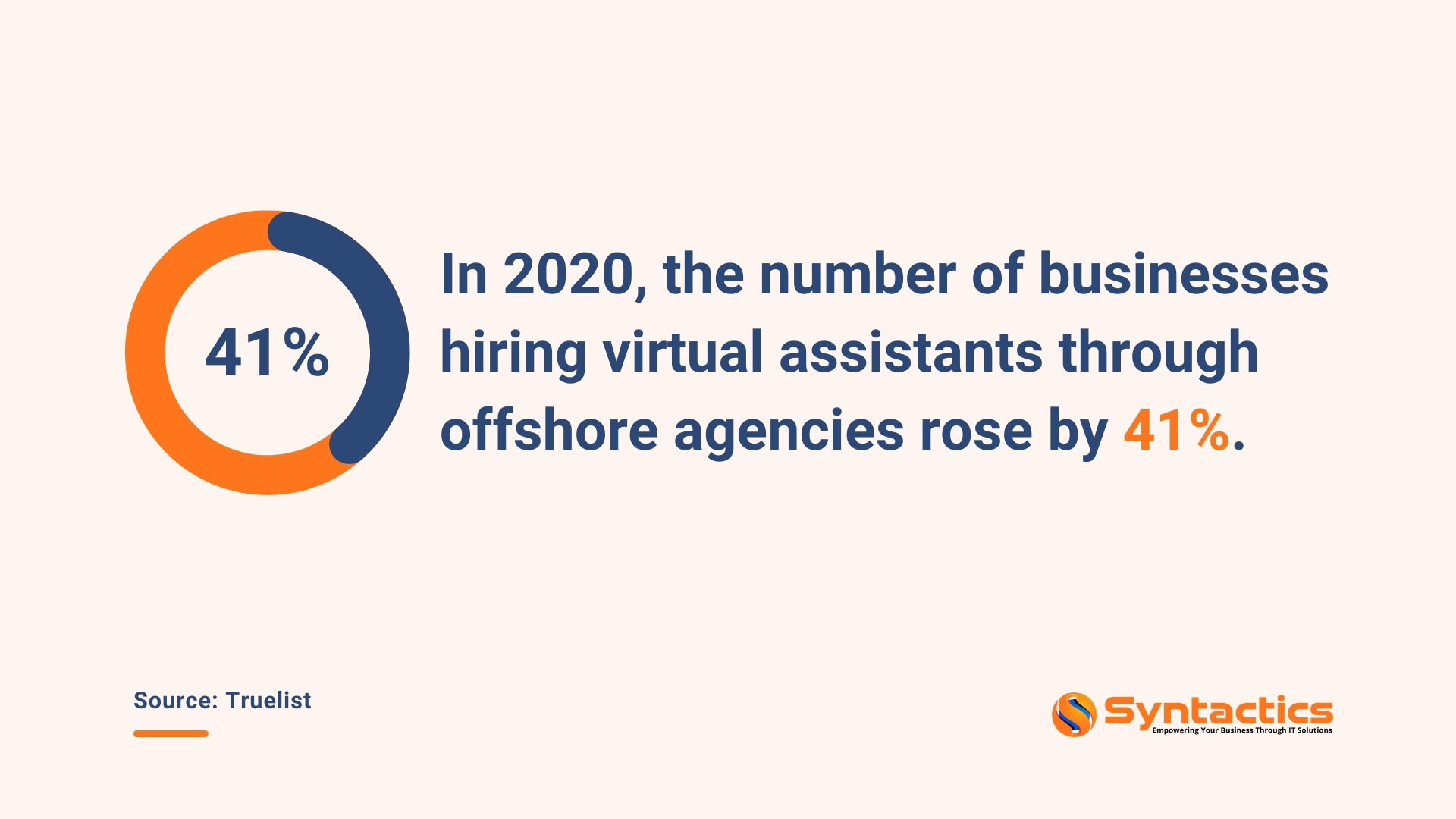
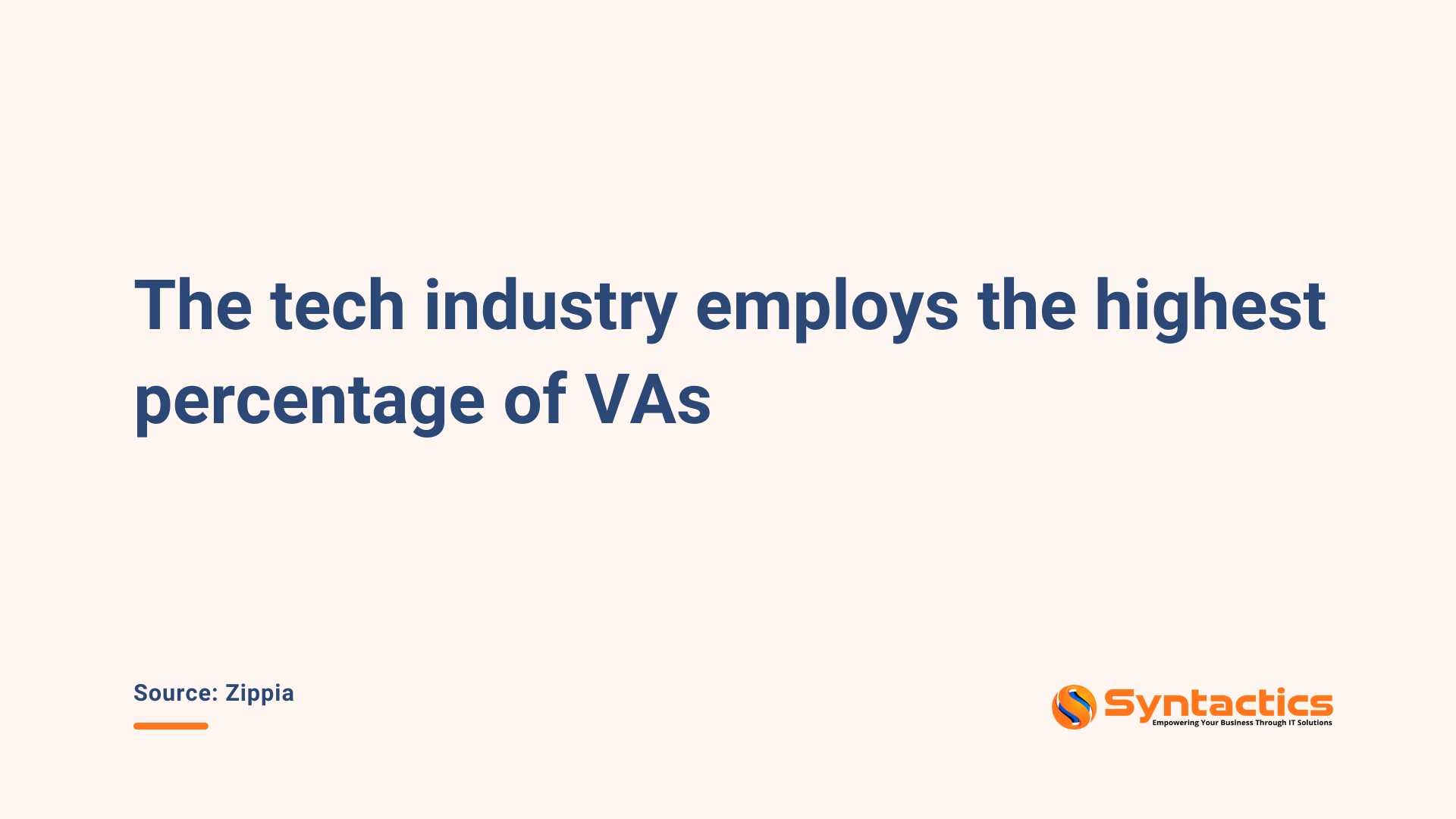
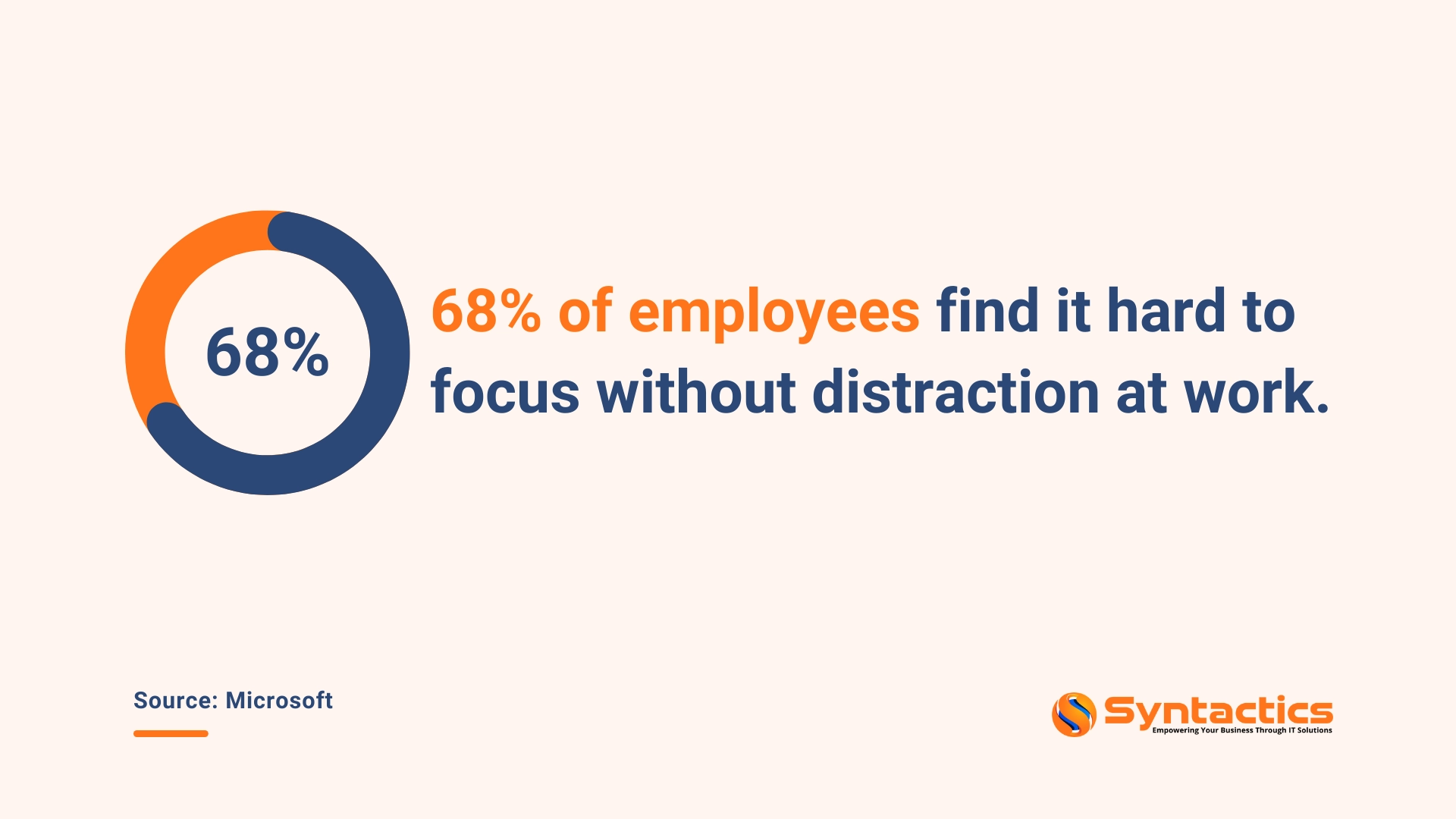

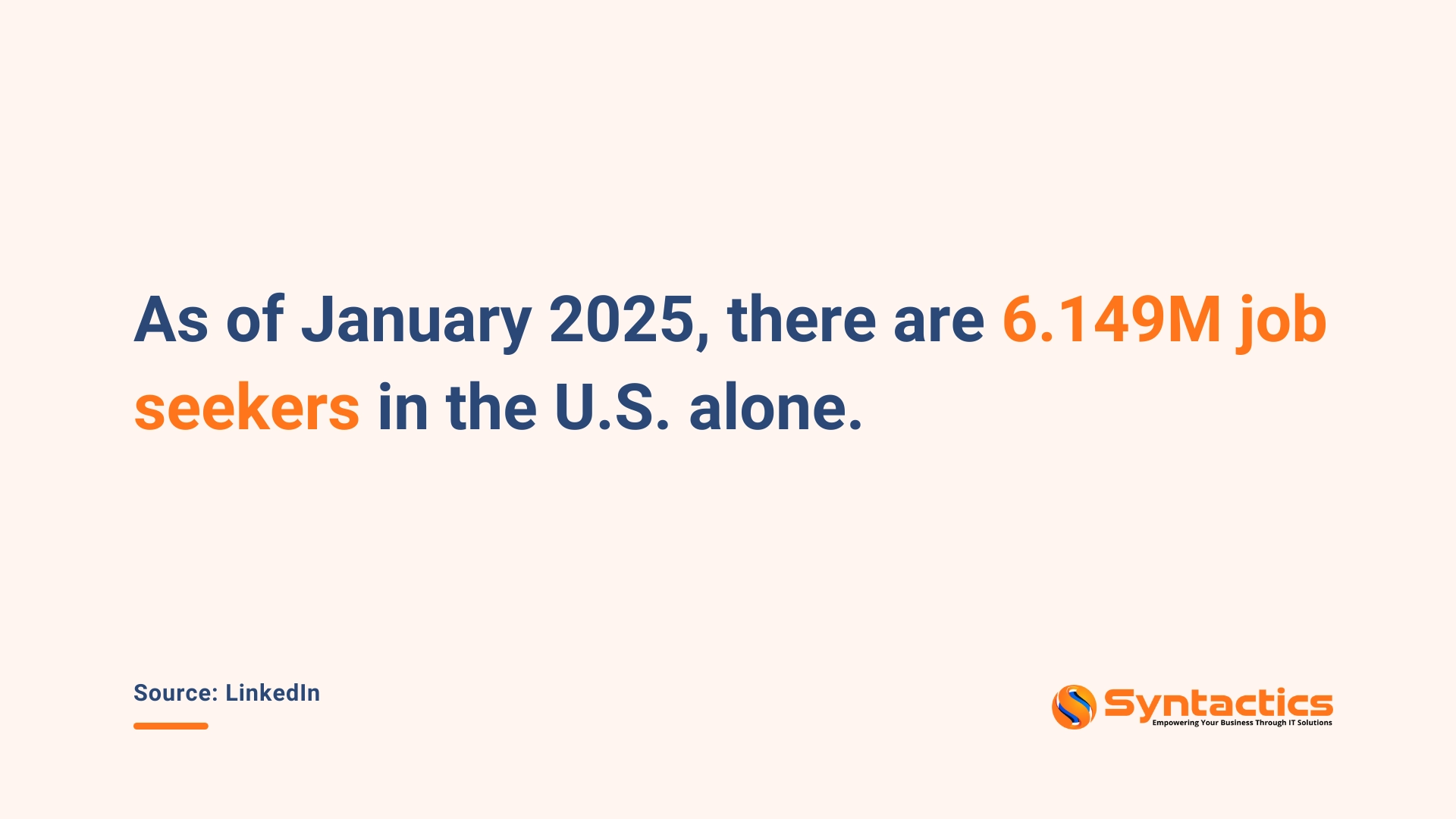
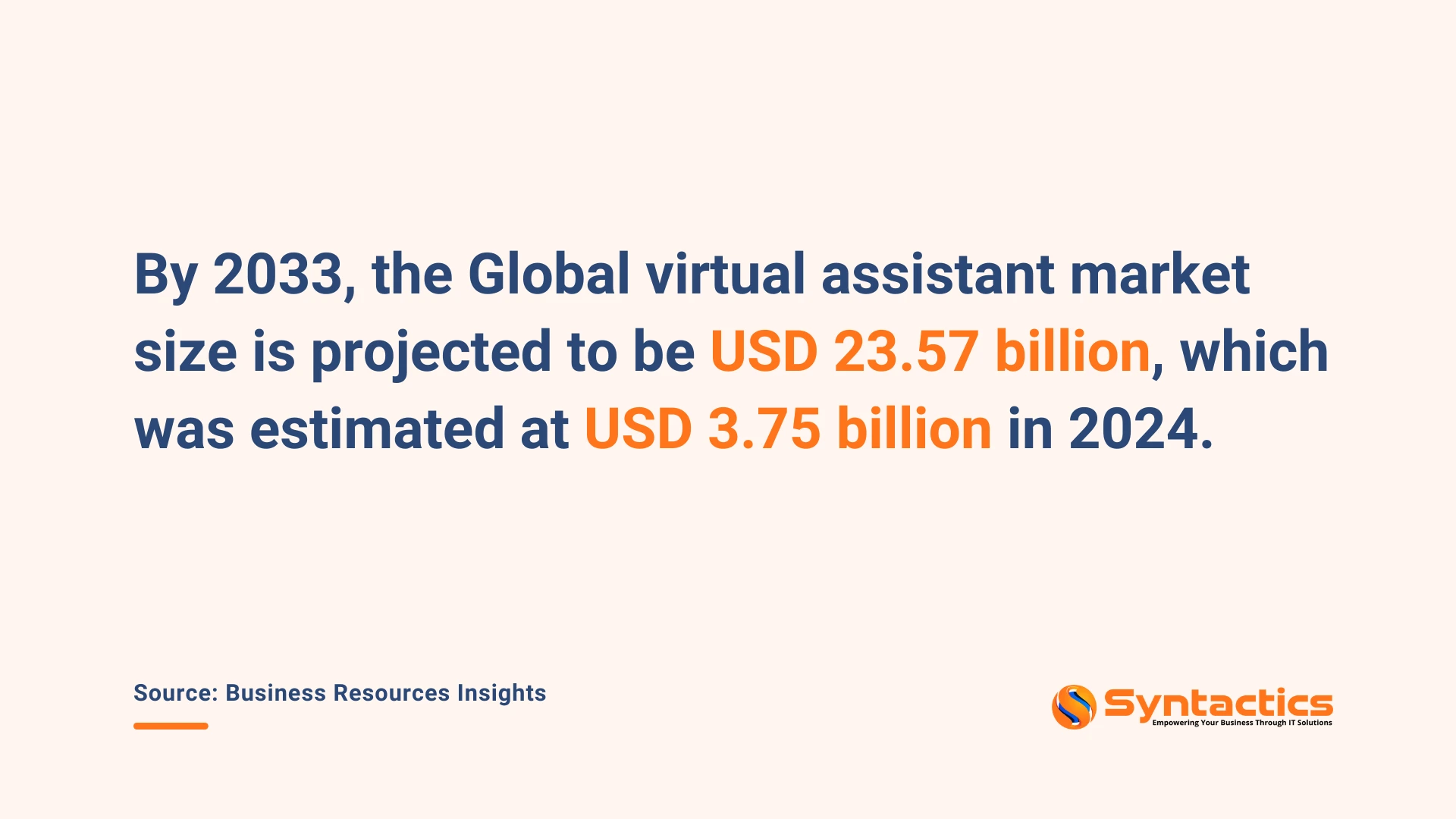
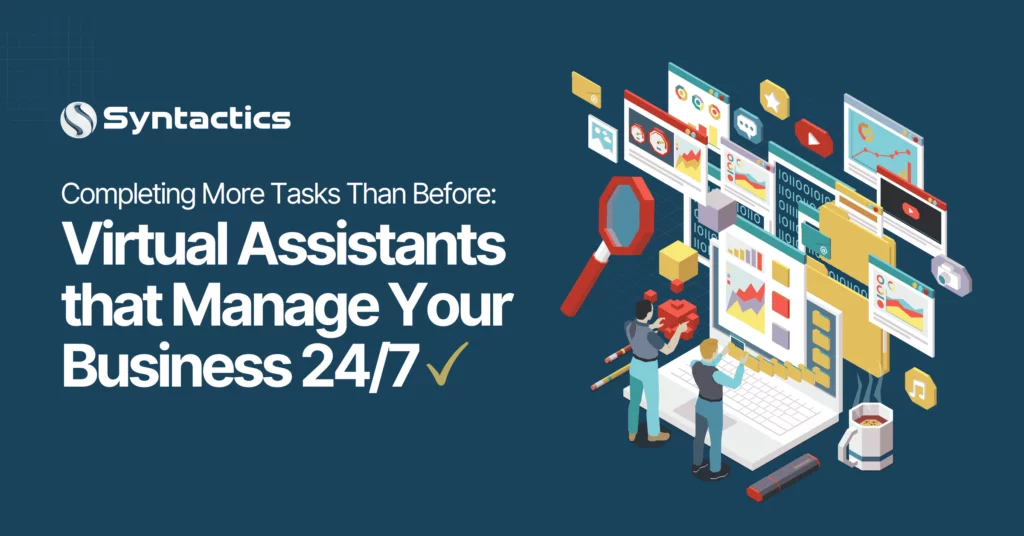







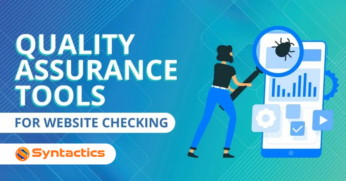









Comment 0